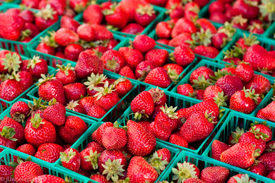Buy a food scale
Options
Replies
-
I found for me it was the opposite, I was way overestimating the size and calories for things because I did not have a scale, and I did not want to be under. I was also hungry a lot, and that led to overeating later. Now that I have a food scale, I know how much I am eating and I find I am able to eat more then I thought. It has helped a lot, and I am not having ravenous cravings anymore.0
-
For a lot of people starting out with a lot to lose, they will likely be pretty successful 'eyeballing' it for a while. And that's probably ok - too many changes at once can derail you! But when you have less to lose, or are trying to maintain, 50 calories off per meal/snack can add up really fast. I weigh nearly everything, and it doesn't take me hardly any time at all. Plus no extra measuring spoons/cups to wash.
I agree. I lost 30 pounds eyeballing and measuring, and it was easier to ease into weighing. Now that I'm almost halfway to goal, it's time to start cracking down.0 -
I found for me it was the opposite, I was way overestimating the size and calories for things because I did not have a scale, and I did not want to be under. I was also hungry a lot, and that led to overeating later. Now that I have a food scale, I know how much I am eating and I find I am able to eat more then I thought. It has helped a lot, and I am not having ravenous cravings anymore.
I'm glad it helped you allocate your calories better!
0 -
Love my digital kitchen scale. Between that and my "Meal calculations" spreadsheet (I use to verify serving sizes), I think 95% of my logging has become much more accurate. Now if I could just find something to magically tell me exactly how much I'm really burning, instead of relying on formulas.
 0
0 -
Pasta serving sizes really surprised me. Almost as much as saying the same thing in another scale thread and getting flagged for it for some reason.
This is what I have: smartaldishopper.com/aldi-review-kitchen-living-digital-kitchen-scale/
I look through the database for foods with 1 gram options and I make one if I can't find one. This makes it much easier for me to weigh things accurately. I still use my measuring cups but the scale gets the majority of use.
0 -
fluffyasacat wrote: »fluffyasacat wrote: »I keep seeing "food scale" on here. Is this a particular thing which is programmed with the calorie values of different food? Or is it in fact what I would simply call "scales" or "kitchen scales" to differentiate them from "bathroom scales".
It's like a scale you might use for body, but smaller and more sensitive. They only work for lightweight items, like less than five pounds. So you can tell if your potato weighs 100 grams or 150 grams.
They are good to have even if you don't care about using them for calorie control. They are very helpful for baking in particular because you can zero out between adding items.
I actually have a very accurate set of digital kitchen scales, but it seems weird to call it a "food scale". I've never come across it. Must be an American thing.
Yep, along with 'cups'. That seems like a weird measurement. I think maybe it's more normal to have kitchen scales in the UK as our recipes generally have ingredients in grams or ounces.
I do weigh my food, but I'm so used to doing it, I find I can cut off a piece of cheese 28-30g easily, or get a spoon of peanut butter that's dead on 20g.
I tend to put my empty plate on the scale instead of the bowl that comes with it and zero it, then add something, zero it again, and so on. My husband laughs at me.
0 -
I love my digital kitchen scale. It is a great tool for measuring out portions of food to eat (3 oz chicken, 3 oz rice, etc.)... but I think that the BEST way to use a kitchen scale is to measure ingredients for when you make your own recipes. I used to be a "little of this, little of that" cook, and never had any real idea of how much protein, fat and carbs were in my soups, stews, and so forth. Now, when I make things, I take note of how much of each caloric ingredient I put in, pop it into MFP's recipe tool, and then figure out calories and nutrients per serving. It works great, because I like to do one huge soup pot on Sunday and eat it for lunch during the week. It goes right into MFP's food log, no guessing involved.0
-
I do recognize that I could reach my goals faster if I just purchased a scale and used it, but for now I will go without a scale. After looking into them I have decided that I may get one later, but that depends on what my goals are like in the future. I know that what the package says is in the item calories wise can be off. At the moment I think estimating that I am basically eating about a sodas worth of calories off is good for me.0
-
katematt313 wrote: »I love my digital kitchen scale. It is a great tool for measuring out portions of food to eat (3 oz chicken, 3 oz rice, etc.)... but I think that the BEST way to use a kitchen scale is to measure ingredients for when you make your own recipes. I used to be a "little of this, little of that" cook, and never had any real idea of how much protein, fat and carbs were in my soups, stews, and so forth. Now, when I make things, I take note of how much of each caloric ingredient I put in, pop it into MFP's recipe tool, and then figure out calories and nutrients per serving. It works great, because I like to do one huge soup pot on Sunday and eat it for lunch during the week. It goes right into MFP's food log, no guessing involved.
That's an excellent point - I use mine this way too. I make a lot of soups and casseroles because 1) they are cheap and 2) leftovers are awesome. Being able to measure my ingredients, then use the recipe function on here helps a ton! In addition to accurate calories, you get more accurate macros too. For me knowing how much protein I get has been hugely beneficial!
0 -
queenliz99 wrote: »Need2Exerc1se wrote: »queenliz99 wrote: »A scale gives you a heads up what the actual food calories hold. Especially when you get down to maintenance levels you will know approximately what calorie each food has. Apples will vary wildly in calories, for instance.
How does a scale tell you how many calories a food holds? If you take 5 apples of the same weight, they are unlikely to all have exactly the same calories.
I didn't word it right. sorry
No worries, I was just confused by the notion.0 -
DawnieB1977 wrote: »
Yep, along with 'cups'. That seems like a weird measurement. I think maybe it's more normal to have kitchen scales in the UK as our recipes generally have ingredients in grams or ounces.
I'm okay with cups as long as we're talking about something that packs happily into a cup, like sugar or flour. It's when you're looking up asparagus spears in the MFP database and the units are in cups that I'm o_0
When I'm baking I find recipes almost exclusively use cups for dry foods.
0 -
A nice digital scale will set you back less than US$20, and is useful for more things around the house than you'd expect. Need to calculate postage? Digital scale. Need to portion out yarn or unspun fiber (OK, I have odd hobbies, I admit it)? Digital scale. Kids' science assignments? Digital scale.
I use mine all the time, sometimes even for food. Best $14 I ever spent.0
This discussion has been closed.
Categories
- All Categories
- 1.4M Health, Wellness and Goals
- 396.8K Introduce Yourself
- 44.2K Getting Started
- 260.9K Health and Weight Loss
- 176.3K Food and Nutrition
- 47.6K Recipes
- 232.8K Fitness and Exercise
- 450 Sleep, Mindfulness and Overall Wellness
- 6.5K Goal: Maintaining Weight
- 8.7K Goal: Gaining Weight and Body Building
- 153.3K Motivation and Support
- 8.3K Challenges
- 1.3K Debate Club
- 96.5K Chit-Chat
- 2.6K Fun and Games
- 4.5K MyFitnessPal Information
- 16 News and Announcements
- 18 MyFitnessPal Academy
- 1.4K Feature Suggestions and Ideas
- 3.1K MyFitnessPal Tech Support Questions










